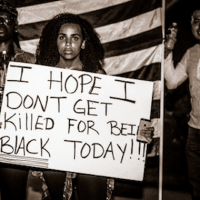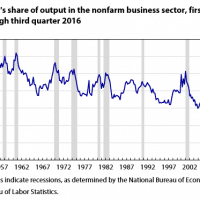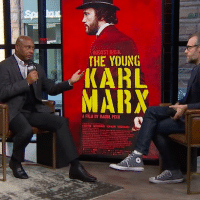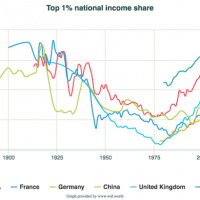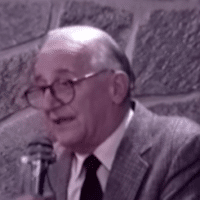-
How the anti-democracy movement use media to command the narrative
As far back as 1835, perhaps our nation’s earliest and most astute observer, Alexis de Tocqueville, understood the power of the media. He described the press as “the chief democratic instrument of freedom.” But today our “instrument of freedom” seems to mean the freedom to enrich oneself privately, whatever it takes. How did we get to this sad state?
-
Sunday suspense
Only one force is genuinely suited to exposing the lies and redirecting emotions away from attacks on the poorest victims and towards solidarity with them against the truly guilty forces on high. It is the Left.
-
There is no such thing as a natural disaster
“Policies aimed at aid and reconstruction became their own forms of punishment, leaving the island more indebted, unequal, dependent and polluted than it was before the hurricane hit.”
-
The origin of the millennial label (and how mainstream media fails to point it out)
Here’s an experiment for you-ask five people if they know where the “millennial” label came from. Chances are that none of them will know. In fact, not much is known about the meaning of the label, other than it being a synonym for “young people” or a catch-all term for those who are “x-to-x” years old.
-
Is equality enough?
Race/isms Book Forum is a new series aimed at bringing established and emerging voices together in conversation around recent work that critically engages our world’s racial scripts, past and present. The structure of the forum is straightforward. We invite three to four thinkers to grapple with a book, highlighting a section of it, and then provide the author(s) an opportunity to respond however they see fit.
-
‘Black Panther’ is not the movie we deserve
Even in a comic-book movie, black American men are relegated to the lowest rung of political regard. So low that the sole white leading character in the movie, the CIA operative Everett Ross (Martin Freeman), gets to be a hero who helps save Wakanda.
-
Globalization and U.S. labor’s falling share of national output
The decline in the payroll share of output is class power at work: unfortunately theirs, not ours.
-
Finding ways to be one: The making of Cedric J. Robinson’s radical Black politics.
Historian Robin D.G. Kelley explores the radical Black politics of scholar Cedric J. Robinson—from his historical understanding of race and capitalism as inherently inseparable systems, to his vision of the possibilities of politics, rooted deep in struggles past and present.
-
The gong of history; or, what is a human?
Every great historical epoch in the freedom struggle raises the question: what is a human? The answer changes, to quote Askia Muhammad Toure of the Revolutionary Action Movement, with “the Gong of History.” Amid all the confusing din of history, a note may sound that makes it audible and intelligible.
-
Raoul Peck speaks on ‘The Young Karl Marx’
Written and directed by Raoul Peck, “The Young Karl Marx” follows a 26-year-old writer, researcher and radical named Karl Marx as he embarks, with his wife Jenny, on the road to exile in an age that has created both new prosperity and new problems.
-
Utopia and inequality
Economic inequality is arguably the crucial issue facing contemporary capitalism—especially in the United States but also across the entire world economy.
-
Janus and fair share fees
Over the last decade, a number of cases attacking the rights of public-sector union members have been quietly working their way through the courts and, finally, up to the U.S. Supreme Court.
-
What can Noam Chomsky’s co-author teach us in the age of Trump?
The story goes that Einstein’s theory of relativity began with a simple question: What if a person could sit on a beam of light? A single inquiry led to an entire field of study, and perhaps the world’s most famous scientific breakthrough.
The late Ed Herman’s questions were less playful. They were about war and death, lies and power politics, but they too created entire areas of study. If properly considered, they can even guide us through the perilous age in which we’re living.
-
School shooting: a U.S. epidemic
How does the rate of school shootings in the U.S. compare with countries where is more difficult to obtain guns?
-
Reds under the Bed
The British conservative media and party establishment are renewing their attempts to paint Jeremy Corbyn as a traitor. But given the failure of this approach in the past, why would they attempt it again?
-
The best books about colonialism and imperialism
The top 29 books, all appearing on 2 or more “Best Colonialism & Imperialism” book lists are ranked below by how many times they appear. The remaining 200+ titles, as well as the sources we used to make the list are in alphabetical order on the bottom of the page.
-
The progress of this storm
Andreas Malm’s powerful critique of current environmental philosophies puts historical materialism and cutting-edge science at the center of a call for militant action.
-
The long-suppressed Korean War report on U.S. use of biological weapons released at last
Written largely by the most prestigious British scientist of his day, the “Report of the International Scientific Commission for the Investigation of the Facts Concerning Bacterial Warfare in Korea and China” was effectively suppressed upon its release in 1952. Published now in text-searchable format, it includes hundreds of pages of evidence about the use of U.S. biological weapons during the Korean War, available for the first time to the general public.
-
Why is there always an economic crisis of some sort?
Unlike liberal economists, Marxists explore the primary role of internal contradictions within the capitalist economy. The MARX MEMORIAL LIBRARY explains why.
-
Will Lebanon be the next energy war?
In 2010 the oil and gas geopolitics of the Mediterranean changed profoundly. That was when a Texas oil company, Noble Energy, discovered a huge deposit of natural gas offshore Israel in the Eastern Mediterranean, the so-called Leviathan Field, one of the world’s largest gas field discoveries in over a decade.





